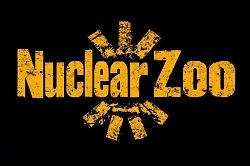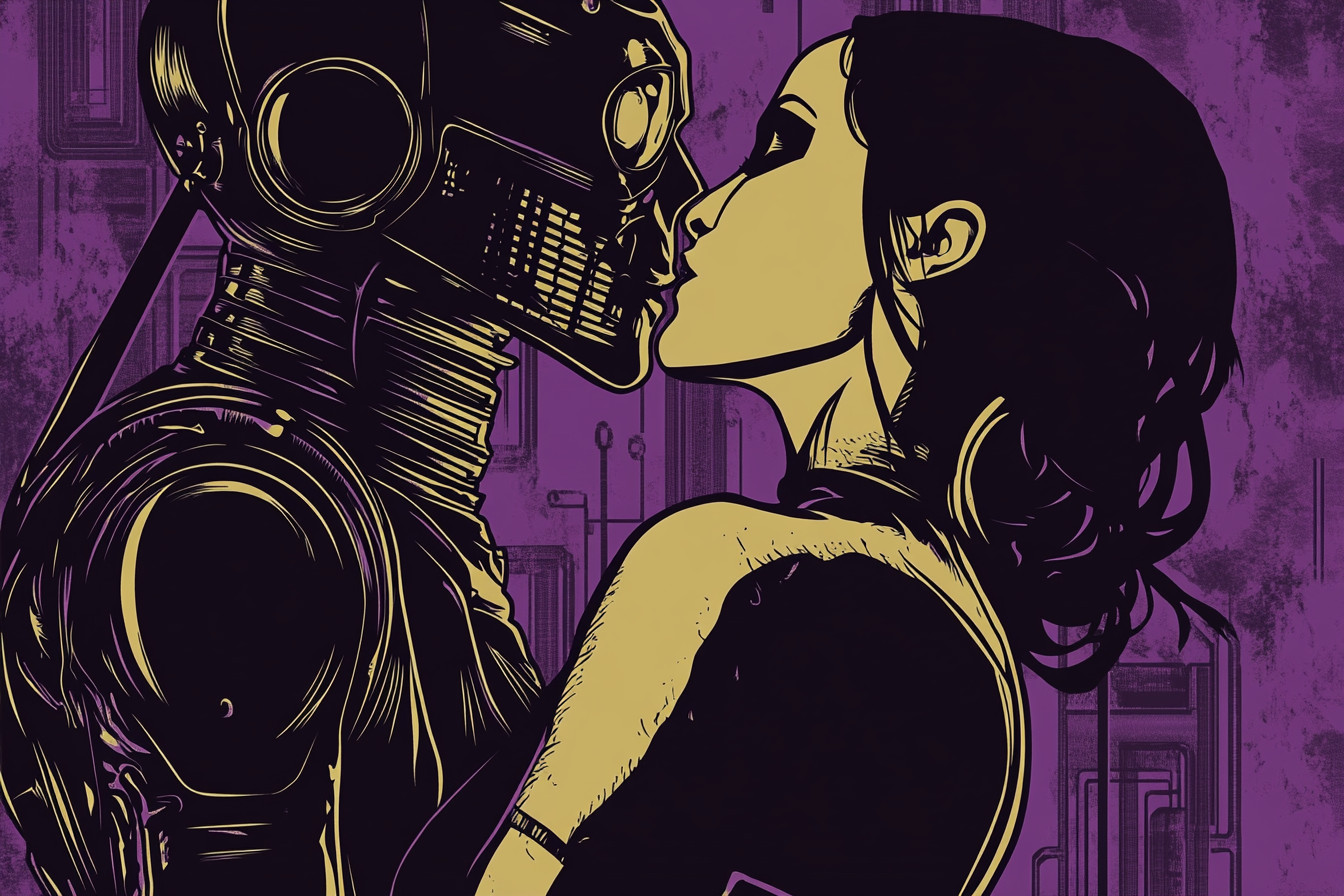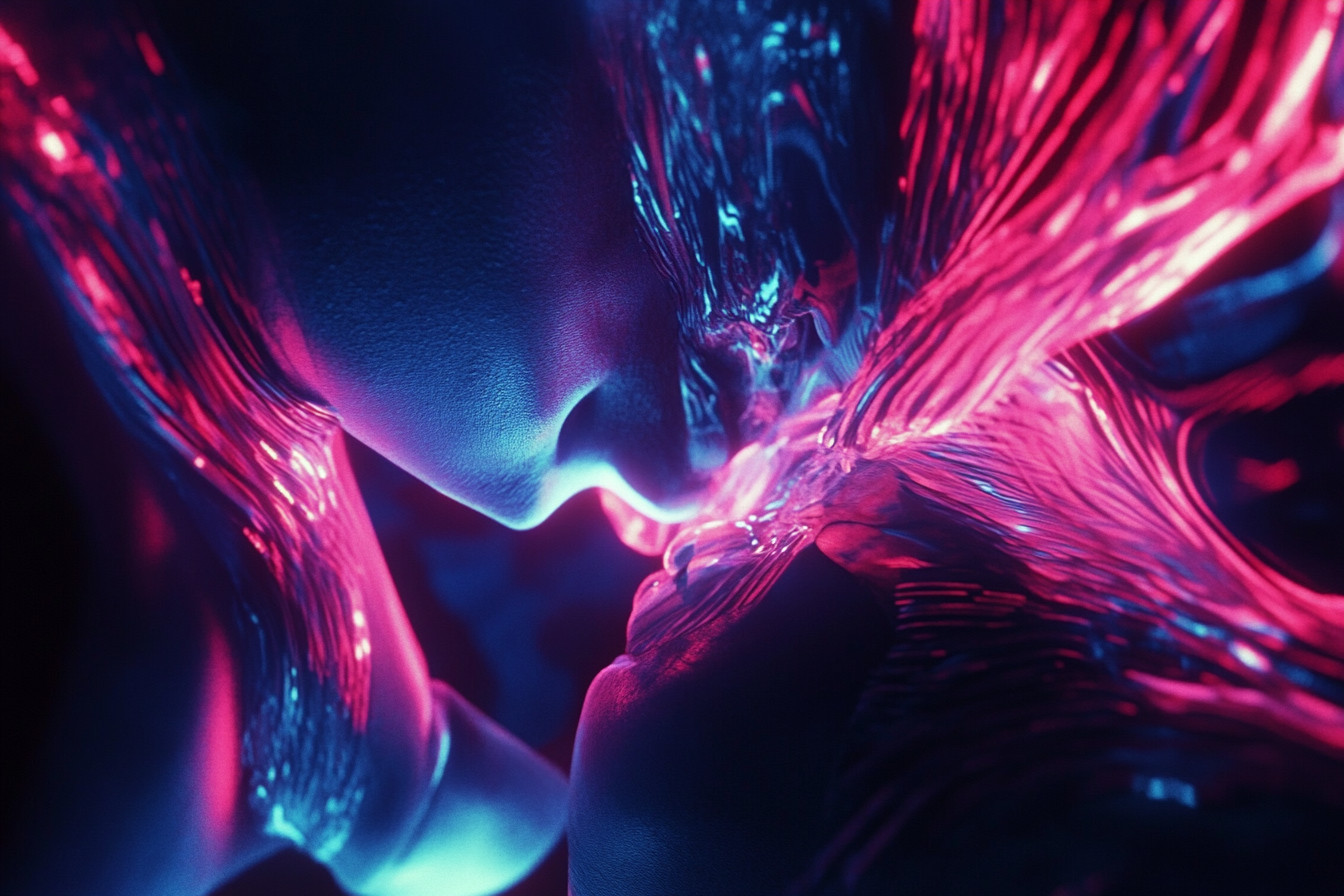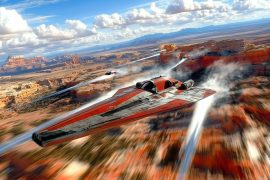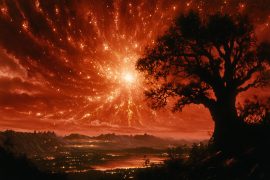Science fiction movies are, on the whole, far too sublime for romance to take center stage. This captivating genre expertly encompasses a holistic romance to grab the attention of readers with deep psychological narratives, alien technology and, naturally, space travel. Criticism and frustration runs deep for everyone who is a hardcore lover for the many scoping avenues of science fiction.
Romance, albeit necessary, is just an intruder who interrupts a celebration in honor of the Discovery Age. Let me explain why love has the power to ruin everything Sci-fi, as well as offer ways on how to perceive romance as a negative element.
At an early age, I consumed space operas as well as dystopian fiction not merely as a source of entertainment, but as a means to gauge humanity’s position in the universe. I vividly recall how exciting it was to watch *Star Wars: Attack of the Clones*. However, Anakin Skywalker and Padmé Amidala’s romance was so bewildering to me. Just like a beautifully crafted art gallery, brimming with strikingly captivating artwork, there exists one ugly painting that’s incomprehensible: their relationship.
The “You’re so beautiful,” “It’s…what’s the word? You know, you’re not like sand!” exchange felt painfully out of place in the awe-inspiring cosmic theatre, stunning cringe inducing whilst instead trying to add value to the narrative. Rather, that romance served to take attention from the complex moral dilemmas of the war.
This makes me question the intense romance sub-plot: why do filmmakers insist on adding a romantic cherry to a pie that is meant to belong to the genre of exploring, surviving, and enduring? That, to me, is the same as trying to add filet mignon to a cotton candy buffet. The stakes were tremendous in *Attack of the Clones*.
The entire galaxy was in danger, and Anakin chose to be knee deep into teenage dramas instead of worrying about the severe issues like loyalty, conflict, and the gloomy clouds hovering over his character development. I honestly wished the plot was lessed over-simplified to sacrifice, war, morality, and the shallow, eye-roll-inducing themes, because these interactions were sickeningly superficial.
The more I tried to immerse myself in a specific genre, the more glaringly obvious the use of romantic stereotypes, such as ‘enemies to lovers’, became. This particular narrative is well recognized and is rarely executed without neglecting character development and examination of layers within a theme. Why do two characters who absolutely detest one another romantically pursuing each other seem to be a recurring theme? This absurd concept can often surface with the same reliability as the sunrise, robbooking people of the beauty found within conflict.
What makes us look toward the banal when they could be turning to the extraordinary, which is often reserved for science fiction? *Interstellar* is a troubling example. I can still recall how my heart rate spiked while in the cinema watching the characters deal with black holes and time dilation.
The initial two-thirds of the film was a downright brilliant use of suspense and entertainment, but when the “love conquers all” narrative popped up, I could sense a shift. The shift from gripping portrayal of man’s struggle – and survival – against a merciless universe towards strange sentimentality was near unbearable. Even during the attempts of McConaughey’s character Cooper to save humanity, the arc started leaning toward the notion that love is capable of overpowering even the laws of physics.
That emotional pivot baffled me. An impression I was left with was that the love-could-warp-time-and-space card was a less nuanced approach to the film’s deeper themes. This reorientation caused devastating damage to the story’s emotional core which had been built around breathtaking stakes and horrific yet profound inquiries.
Was it necessary to frame love as a supernova to punch something into a tale so beautifully interwoven? The previously romantic subplot felt like a distraction from the story’s backbone and had terrible repercussions on the film’s prior brilliance. Soon came *Passengers*.
This film was one that I definitely wanted to see because I was quite curious about the ramifications of space travel into the unknown and the notion of solitude. But, as I progressed further into the plot, I found myself unsatisfied with the tacky and unoriginal romantic subplot. Instead of examining the solitude’s aftermath and the ethical dilemmas surrounding the waking of a person from cryogenic sleep, we were given a contrived romance.
Everything that made the plot so captivating was substituted with a bland rom-com that failed to address key themes relating to seclusion, morality, and the essence of being human. Reflecting on this, one thing is evidently clear: science fiction sure does lose its charm when romance is introduced as the supposed focal point. It is a genre that can beautifully explore humanity’s greatest challenges and their most profound hopes, but unfortunately, these ideas are often lost when romance is interjected.
For instance, *Blade Runner 2049* considers love only in relation to a philosophical framework. It does encourage one to ponder experiencing identity and existence through K and Joi’s relationship, yet it does not permit romance to distract from the film’s intricate tapestry of humanity. Love does not drive the plot here.
Rather, love is woven into the narrative’s primary tale of an existential probe. *The Fifth Element*, on the other hand, showcases a romantic angle that can only be classified as absurd. The romance of Korben Dallas and Leeloo is contrived and seems to diminish the weight of what is otherwise a galactic conflict.
Leeloo is a goddess granted with the ability to save the world but is a romantic interest, a submissive princess turned maiden. While the film has its silly charm, this particular romance a head-scratching attempt within the narrative’s scope. Personally, I don’t care about romance in science fiction, but I do find it fascinating that many people enjoy it, which makes this discussion so engaging.
For some people, the ability to construct emotional relationships while characters traverse the universe in real-time, is a much needed diversion from the complexities of the plot. Now and then, a flurry of emotions softens the otherwise hostile climate of outer space. However, far too many of these romantic interludes in the plot progression of the genre feel like side journeys, rather than enhancements when one views space as a canvas ready to be painted on.
Spike Jonze’s *Her* is a film that adeptly incorporates both romance and sci-fi. It starts off as a simple tale of a romance between Theodore and Samantha, but also deals with themes of isolation, love and human interaction in the modern world. Apart from serving as another romantic subplot, it provides an opportunity to examine love and relationships in modern society, which is dominated by technology.
Rather than detracting from the sci-fi themes, *Her* actually makes users reflect on the relationships they have, making love the core focusing point a striking examination of. As much as I would like to see fiction explore ideas such as cosmos and existence, I would prefer in the future to see romance either incorporated seamlessly into the story or completely removed from it.
Instead of a well executed side story, romance can also serve as a poorly added the chunk. But I’m fond of believing that if this genre approached the impossible challenges instead of the trivial pursuits of romance, it could flourish. As a science fiction enthusiast, I cherish the ideas that attempt to change the way we see ourselves and the universe.
Don’t get me wrong, but I wish there were narratives that attempt to offer an insight of humanity without appealing to drowning in romance. Is; Isn’t the whole idea of science fiction to inspire feeling wonders and invoke thoughts rather than predictable fall in love stories? Why not step into the unknown, without romance or best, let it function as a subplot.
